I was impressed with the courage of young women at Sahiyo’s Activist Retreat
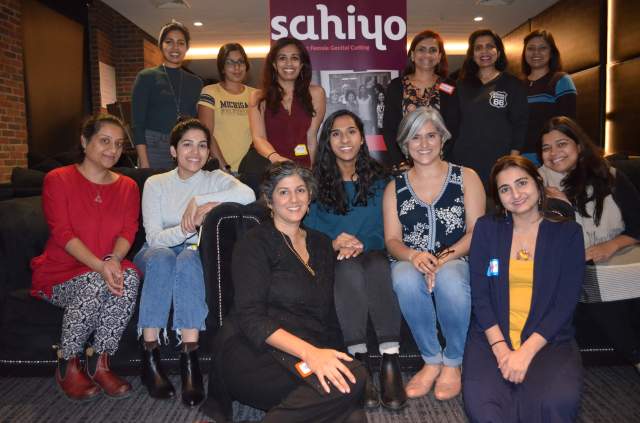
By Rashida Rangwala In March 2019, I attended my second Sahiyo Activist Retreat. For me it was an occasion to meet friends I had made last year at the 2018 retreat, share the progress I had made as an activist over the course of the past year, and demonstrate how much the first retreat had helped me in achieving that progress. My anti-female genital mutilation/cutting (FGM/C) activism has involved talking to reporters and young students ranging in age from high schoolers to college students about the practice of FGM/C in the Bohra community. I have also counseled and educated young mothers and girls on FGM/C and its harmful impact on the girl child. I learned at the retreat to take a step back, slow down and listen to the pro-FGM/C people. Don’t make them so angry that they won’t talk to you and you reach a zero communication status. Give them a fair hearing, educate them, dispel misconceptions, break—slowly, but surely—break whatever resistance they have and poke holes in their thinking process until it completely falls apart, until they think for themselves, “Oh, wait a minute, I think I’m not going to do it to my daughter.” Start talking to the mother early and make her strong with knowledge about the harmful impacts of the procedure, so that when her child is seven years old, she makes an informed decision. I spoke to a high school student that Sahiyo connected me with. She was writing a paper for her school project, interviewed me, and cried a little bit with me when I shared my story with her. I sent her pictures of myself to be used when she made her presentation. In the past, I would only give a name when I shared my story. But I realized that unless you have a picture to associate with the name, people can’t relate to your story on the same personal level. I’m now able to give my picture and have become more public when I share my story, something I didn’t do before the Sahiyo retreat because I was afraid to do so. Watch video here. Right at the beginning, on day one of the Sahiyo Retreat, I was happy to see that we had nearly doubled the number of anti-FGM/C activist participants attending the retreat from 11 in 2018 at the first retreat to 21 in 2019. This time around, I had the chance to become acquainted with women from ages 21-28 years old. Talking to them over the course of the 3-days was very insightful. What amazed me was how self aware these young girls were about FGM/C. For me, FGM/C was vague knowledge that was always there in the back of my brain, but these girls knew exactly what had happened to them and were so aware of its consequences and so vocal about sharing their stories and being against it. That was a big insight for me. Perhaps this generational change could be because of social media; it’s in the news. They do have that advantage, which my generation did not. They have more sources of information today. I was impressed with their courageous resolve to bring about change in thought in the Bohra community. To me, these young women were simply brave souls. Some of these young FGM/C survivors had opened up conversations with their mothers about performing the procedure on them. While others had yet to speak to their mothers about FGM/C, they were in the process of building up the stamina they needed to take up that challenging task. I had a chance to tell them, “Don’t delay it.” It’s too late for me. My mom passed away and I never got to talk to her. It was amazing to see the collaboration between generations of women at this year’s retreat. We are certainly making progress in creating awareness in our community about how harmful FGM/C is to the girl child and we are bringing about a change in the thought process of the new generation so that they will abandon FGM/C. I am looking forward to the 2020 retreat and how it will spread our message slowly, but organically, one activist at a time.
Missing Link
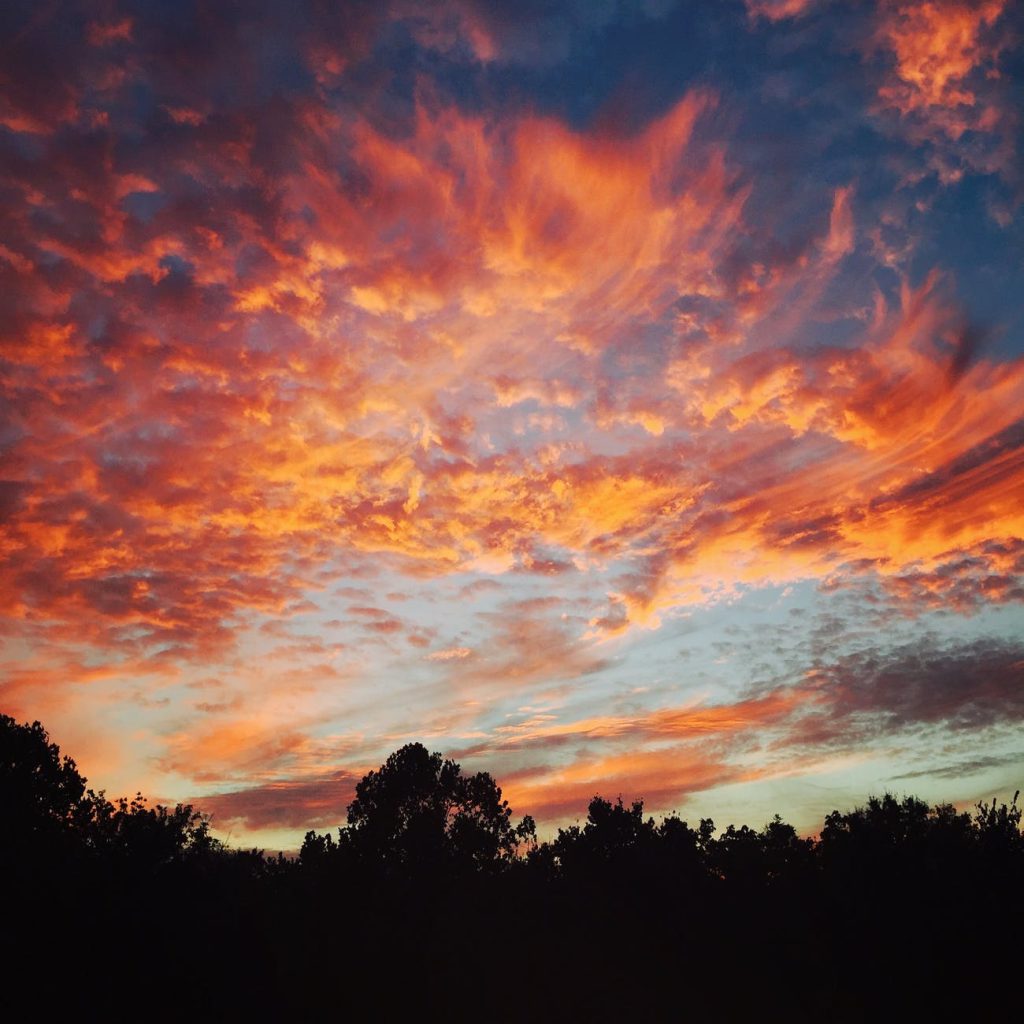
Missing Link By Anonymous No cuts, no wounds, but deep empathy for my sisters.I came to NY for the 4th time but for an entirely different circumstance. Being part of the Bohra community, I have made countless connections, some of who have been integral in my life. Yet, I still felt distant from the community that often lacked logic and ran high on emotion. Weird though, since I am kind of the same way at times.Learning about FGM for the first time at 14, everything shifted. I have always had an ability to empathize with others, but this was something utterly outside of my scope. I bowed my head and accepted that I will never understand the magnitude of this trauma,but I can surely become part of a movement and advocate alongside. I can use my voice.I can use my ability to empathize as a tool to heal the traumatic wounds. The 2nd annual Sahiyo Retreat was nothing short of inspirational bliss.I felt recharged.I felt motivated.I felt empowered.To hear each survivor’s story and understand ways to take action–it has become a movement.A movement that I want to walk with. While energy can subside, the power of one weekend still buzzes in my heart. Knowledge, trauma, empowerment, change, community- all wordsThat have taken on a new meaning entirely. As I wait for the next retreat, I continue to ask my selfWhat can I do, learn, ask different every dayto continue to be well-informed and a trueactivist. Thank you, SahiyoFor bestowing this buzz of energyAnd for helping me connect themissing linkof emotion and logic.And that link isSISTERHOOD.
Global Call to Action From “Uniting forces to make female genital mutilation/cutting a practice of the past: A gathering for global civil society actors”

On June 2, 2019 in Vancouver, Canada, civil society organisations, champions, survivors and other grassroots representatives came together at Women Deliver 2019 to unite voices around a global Call to Action to end female genital mutilation/cutting (FGM/C). The pre-conference was an unprecedented gathering as a sector working globally across the issue to discuss what is needed to accelerate ending FGM/C by 2030. The event put grassroots voices at the centre and worked to strengthen our unified community of practice to support the achievement of Sustainable Development Goal 5.3. (eliminate all harmful practices, such as child, early and forced marriage and female genital mutilation). “Uniting forces to make female genital mutilation/cutting a practice of the past: A gathering for global civil society actors” involved more than 100 participants in Vancouver. More than 270 additional participants shared their expertise and experience through an online survey. The event was co-ordinated through a core group of globally representative organisations that managed logistics: Amref Health Africa, Coalition on Violence Against Women, End FGM Canada Network, End FGM European Network, Equality Now, Orchid Project, Sahiyo, The Girl Generation, The Inter-African Committee on Traditional Practices, The US End FGM/C Network,There Is No Limit Foundation and Tostan. Participants in Vancouver endorsed the following Call to Action: PREAMBLE FGM/C is a violation of the human rights of women and girls and must be ended in all its forms We need to make FGM/C a global priority, in the same way the global community responded to other global epidemics, such as HIV/AIDs SUPPORTING CHANGE FROM WITHIN – CHALLENGING SOCIAL AND GENDER NORMS We share a vision of a world free from FGM/C and will work in partnership with each other, all communities, governments, donors, multilateral bodies and others to end the practice by 2030 in line with the SDGs Whole communities must be mobilised and empowered at the grassroots level if we are to end FGM/C – women and girls, men and boys, traditional and religious leaders, health workers Ending FGM/C requires addressing the root causes of gender inequality at the community level, including gender stereotypes, unequal power relations, and negative social norms STRENGTHENING THE EVIDENCE BASE THROUGH CRITICAL RESEARCH Fill the knowledge gap on FGM/C survivors’ specific needs, impact on economic empowerment, and behaviour change around emerging trends such as medicalisation and lower ages of cutting Use community-based participatory approaches within research efforts and ensure that research results and data are synthesised for communities to use Create, test, and implement standardised universal indicators that are informed by context specific measures and demand country-level reporting IMPROVING WELLBEING VIA SUPPORT AND SERVICES FOR SURVIVORS More support is needed for survivors in various forms, including security and protection for survivors, targeted research and resources to enable health and emotional wellbeing Enable the transformative power of survivors and survivor-led networks through support to connect with each other, other gender-based violence movements and capacity build ADDRESSING EMERGING TRENDS AROUND FGM/C We need an integrated, intersectional approach to ending FGM/C recognising the connections with other forms of gender-based violence and linking with existing movements We are committed to working with religious leaders, health workers and governments to respond to adaptations to the practice which continue to violate women’s rights, such as medicalisation, cross-border practices, and lowering the age at which FGM/C is carried out INCREASING RESOURCES TO ACHIEVE THE GLOBAL GOAL We call on all stakeholders to prioritise resources towards grassroots and community-led programmes. Funds should be more flexible, sustainable and accessible for communities and grassroots and capacity building should be provided as well as networks Investment is needed in better research into what is working and what is not to end FGM/C. This research needs to be participatory and involve multiple stakeholders and should be made available and accessible We are focused on coming together and working collaboratively to address what existing gaps there are, what are the costs of FGM/C, and what do we need to end this globally See call to action as PDF here. Further Women Deliver blog posts: Joint Press Release: Ending FGM/C BY 2030: Uniting forces to make FGM/C a practice of the past Multiple events on FGC hosted at Women Deliver in Vancouver
Looking Back: Sahiyo at CSW/MALA’s March 2019 Event
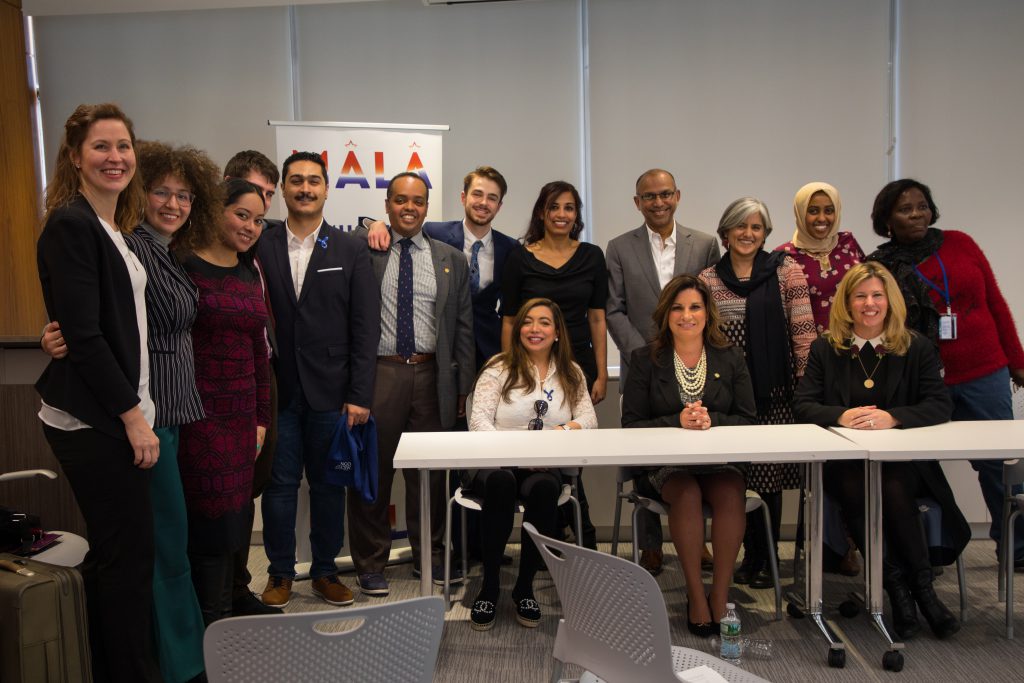
On March 18th 2019, the Muslim American Leadership Alliance (MALA) hosted a parallel event on “Addressing FGM in the USA: Safeguarding Survivors and Protecting Victims“ at the UN Commission on the Status of Women 63rd Session in New York. The panel took place at the UN Church Center. The panel convened survivors, policy makers, non-profit leaders, and community organizers to facilitate the dialogue on what necessary steps are needed to ensure ‘zero tolerance’ towards FGM for both survivors and at-risk women and girls. Speakers included: Mariya Taher, Sahiyo Cofounder Mary Franson, Minnesota House of Representatives Andrea G. Bottner, J.D., Senior Advisor- Independent Women’s Forum Asad Zaman, M.D Zehra Patwa, WeSpeakOut Co-Founder and Sahiyo Vice-Chair of the U.S. Advisory Board This panel analyzed the practice of FGC in the United States through a medical, psychological, and legislative lens. The panelists collectively suggested a variety of approaches to bringing communities together to gain knowledge and organize. The event was incredibly popular, with the room at full capacity and more guests listening from the hall. These types of events are essential towards our progress in creating a world without FGC.
Sahiyo talks about female genital cutting at 3rd Annual Intersections of Violence conference
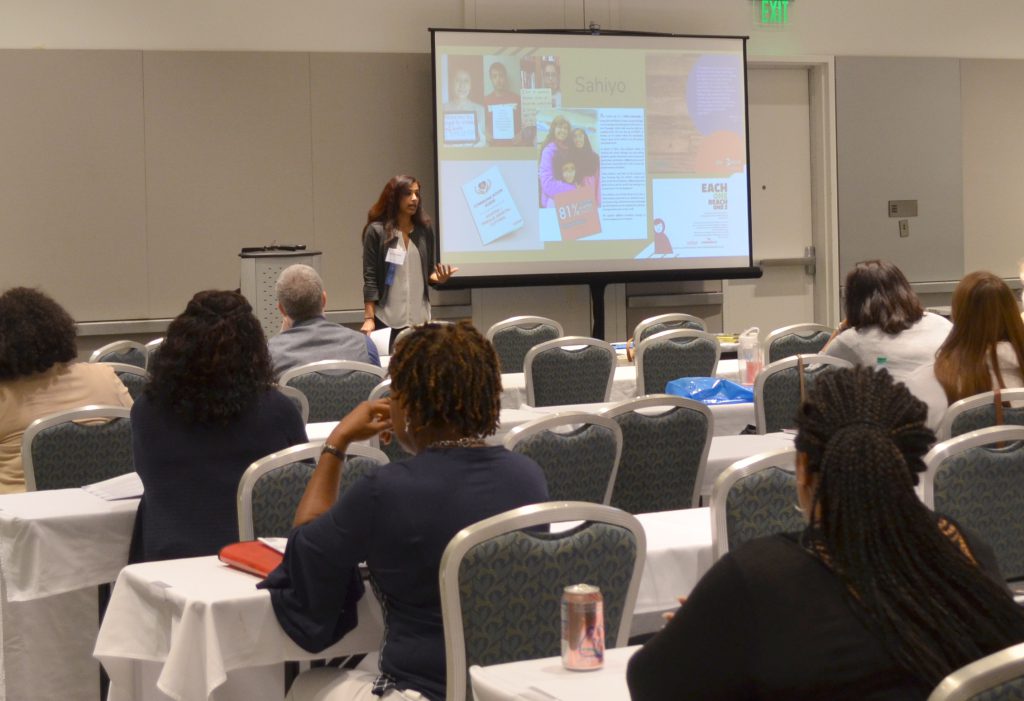
On July 16th, Sahiyo Cofounder and U.S. Executive Director, Mariya Taher was invited to attend the 3rd Annual Intersections of Violence: Domestic Violence, Sexual Assault, and Child Abuse Conference in Hampton, VA and host a break-out session on female genital cutting (FGC) in the United States. The conference is dedicated to enhancing the effectiveness of victims service professionals and brought together law enforcement, prosecutors, victim advocates, child advocates, and other allied professionals to highlight promising practices and emerging issues to effectively respond to domestic violence, sexual assault, andchild abuse in our communities. Mariya’s presentation, the only one of its kind at the conference, covered an overview of who is affected by FGC, interventions used to address FGC, and how to work/respond to survivors. Most attendees had little experience with FGC and so throughout the presentation, survivor stories, from Sahiyo Stories project were shown to participants to help contextualize that FGC was an issue within the U.S. affecting women of all different backgrounds, including religion, ethnicity, socio-economic status, education level, citizenship status, etc.
#MenToEndFGC: Sahiyo’s Male Ally Campaign Launches

The issue of female genital cutting (FGC) is usually told from a woman’s perspective – for obvious reasons. Women around the world have spoken up against this practice that has gone on far too long, and we commend those who have made their voices heard. At Sahiyo, we know that while a lot of progress has been made, there is still a lot to be done to ensure that girls and women no longer undergo FGC. We know that more voices need to be heard, and that’s why we launched our male ally campaign. Last month (July 2019), we issued a call-to-action for men to speak out against FGC. We know a lot of misinformation exists about FGC, and that men may not be aware of what goes on, or they may be misinformed about what FGC does to a child or a woman. We asked men to submit short videos, audio files, quotations, or blogs that share one thing in common: taking a stand against the practice of FGC and denouncing it. The response we received was amazing. Dozens of men across the globe from Ghana and Kenya to multiple regions of India and the US stepped up to answer our call. Many shared their personal experiences with FGC, involving their wives, daughters, sisters, or friends being cut. Others described why FGC needs to end and how harmful it is. Each one made their thoughts known and told us and everyone why the practice of FGC needs to end for girls and women worldwide. This took place in several formats, such as quotes, audio entries and videos (see examples below). In addition, we took this campaign to highlight the thoughtful blog pieces written by our male allies over the past few years, such as this powerful letter from a father. [youtube url=”https://youtu.be/pn6KOMKirRg”] To watch more video entries of this campaign, check out this Youtube playlist. We greatly appreciate all of you who took the time to send in a blog post, video, quotation, or audio file. We will be posting these submissions throughout August and September on our Facebook, Twitter, Instagram, and LinkedIn pages. If you missed the deadline for submissions or would like to add more of your thoughts, we will be using the hashtags #MenToEndFGC, #SahiyoMaleAllies, and #MenEndFGM in our posts. If you use these hashtags or tag @sahiyovoices in a post, we may repost it! We know that we must stand together and unite to end FGC. These men stepping up and speaking out against FGC is a step in the right direction, and we hope it inspires more men to use their voices to help end FGC for all girls and women.
Discovering female genital cutting in my community
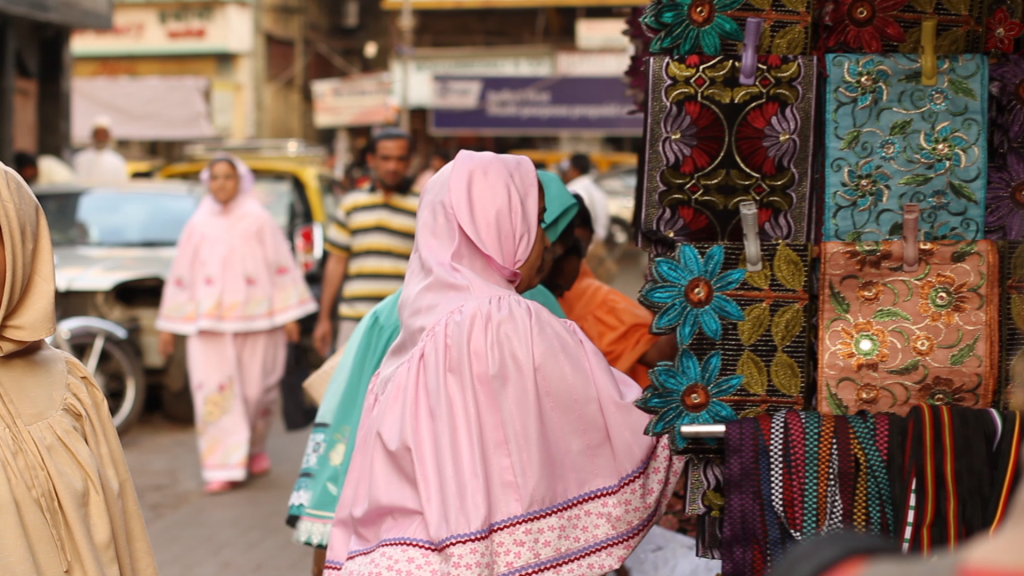
By Mariam Sabir Country of Residence: United States With so many issues in the world that need to be addressed, we have to pick and choose our battles, whether it may be poverty, education, inequality, or gender violence. The majority of people choose something that they can most relate to via personal or cultural experiences. With this first blog I will write about my personal journey of discovering female genital cutting (FGC) in 2011 and why it took me eight years to finally do something about it. My sister is my confidant, as I am hers. I was 17 years old when my sister pulled me aside urgently to talk to me about something she could not fathom. She had just discovered FGC. I was still in high school and did not grasp the gravity of the situation. A few years later, I was sitting in my healthcare ethics course in undergrad and my professor breezed over the topic of female genital cutting. My mind started to spin. This could not possibly be what my sister was talking about? I called her immediately after class and she confirmed it. I was enraged as though I was hearing it and truly understanding it for the first time. It felt like a conspiracy. No one in the community talked about it. How many of my cousins, friends, and aunts had gone through this and had never spoken of it? I was desperate to talk to someone about this. Surely there must be somewhere I could go to get more information. I called the first person that came to mind, my mother. I could sense her discomfort in talking about this subject. She told me it is a Bohra custom, a social norm within our community that people feel compelled to perpetuate without questioning, even by my grandmother as well. My mother admitted that it was a traumatic experience, but did not want to indulge further. I was not satisfied. I called my aunt. My aunt is more liberal and expressive; she writes poetry and is an activist in her own ways. Surely, she would have more to say about this. She told me it was done supposedly to moderate a woman’s sexual urges to prevent premarital or extramarital affairs. To my dismay, this was the end of our conversation. My attempt to gather information seemed like an impossible task. I did not know where to go or who to talk to, so I pushed my thoughts aside until that summer when I went back home to Dubai. I was curious to see how much Bohra men knew about this. I met up with an old Bohra friend and told him what I had discovered. He immediately said, “Well, men get it done, too.” I was disappointed. I told him that male circumcision and FGC were not equivalent, that FGC was much more psychologically and sexually damaging for a female. He continued to defend the custom saying there must be a reason why Moula (the leader of our community) recommends it. There must be a long-term benefit from the procedure that we don’t know about. I was in disbelief. How could he not think it was wrong? I was left more confused and angry after that conversation. Was I making this a bigger deal than it needs to be? Why is no one else speaking up about this? I attended medical school and the more I learned about female anatomy, the more upset I got thinking about FGC. I felt powerless until I heard a friend talking about Sahiyo. I was shocked and relieved. It was comforting to know that I share the same views as many other women. Up until then, I felt like my emotions of anger and distrust were out of proportion and unjustified. There was finally a safe space to discuss FGC, gather information and truly understand its origins. Through Sahiyo, I learned more about how we can create awareness and discussion about such a sensitive and taboo subject. In retrospect, I wish I had handled the conversation with my Bohra male friend differently. It was presumptuous for me to think he would understand what women went through. Afterall, it is our body, not his. I wish I had the tact and knowledge to educate him about the long-lasting effects of FGC, to tell him that it is not a small-community problem but a human rights issue. That taking a child at the age of seven and altering her anatomy forever is not okay. That depriving a woman from experiencing pleasure during sexual activity is not okay. That potentially causing severe pain and complications for women’s reproductive health is not okay. That tampering with God’s creation of a perfect body is not okay. That perpetuating patriarchal standards by continuing this practice is not okay. All the secretiveness around this topic should be a red flag for everyone who blindly follows this practice. So let’s question it. Let’s drop the secrecy. Let’s drop the shame. Let’s create awareness. Let’s educate each other.
Multiple events on female genital cutting hosted at Women Deliver in Vancouver
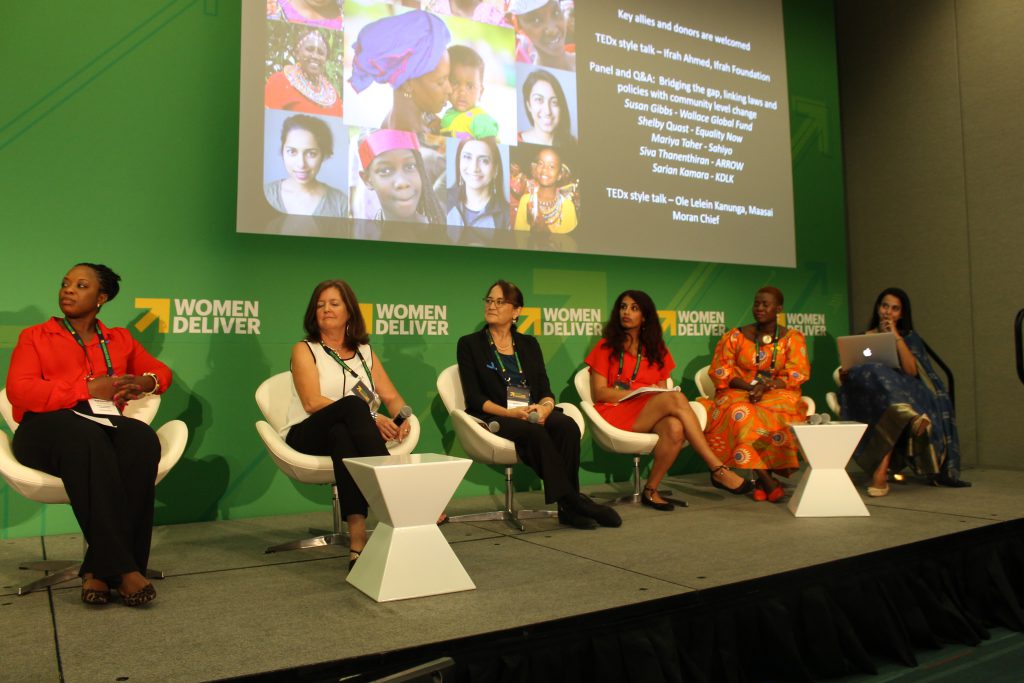
From June 2 to June 6th, Sahiyo co-founder, Mariya Taher took part in Women Deliver 2019 held in Vancouver, Canada this year. Over 8,000 participants took part in the conference and for the first time ever, a pre-conference on Female Genital Cutting was held on June 2nd, a day before the official start of the Women Deliver Conference. The preconference, “Uniting Forces to Ensure Female Genital Mutilation/Cutting (FGM/C) is a Practice of the Past” was an unprecedented event from civil society for civil society to unite voices and come together around a global Call to Action to end FGM/C and support FGM/C survivors. The event convened civil society organizations, champions, survivors and other grassroots representatives from across the globe to come together as a sector, to get to know others working globally across this issue, and to discuss what is needed to accelerate ending FGM/C by 2030. A global call to action was created out of the preconference by the participants in attendance, which was referenced throughout the entire duration of the conference and the various side-events on FGM/C held from June 3rd to June 6th. Other side events in which Sahiyo took part in as a panelist or speaker included: A screening of ‘In The Name of Your Daughter’ with a panel discussion afterwards entitled ‘FGM and the West — Is it our issue too?’ ‘It takes a whole community: Ending female genital cutting within a generation’ – hosted by Orchid project, this event was a highly participatory, activist-led, interactive workshop on community-based approaches to ending female genital cutting (FGC) within a generation. Featuring grassroots and civil society activists from East and West Africa, Asia, and North America, this session shined a light on effective community-led strategies to shift social norms and end FGC. ‘Ending FGM by 2030: It’s a global issue’ hosted by Equality Now. With a little over a decade before the 2030 target to end FGC, this interactive panel session and audience Q&A explored two vital challenges/themes/hurdles our international community must address to achieve to protect every woman and girl from FGC: 1) How do we measure, invest and support each of the 193 countries who have committed to end FGM, including especially in Asia Pacific, the Middle-East, the Americas, Europe and Eurasia? 2) How can activists, CSOs, intergovernmental bodies, and funders move forward as one to hold States, International and regional bodies and donors to account to end FGM globally by 2030? To learn more about Women Deliver and impact of the Preconference and side-events, check out related media coverage: World leaders urged to make female circumcision a priority like HIV Activist push for end to female genital mutilation and call for Asia Network Sierra Leone’s first lady confronted over FGM controversy Further Sahiyo Blog Posts on Women Deliver: Joint Press Release: ENDING FGM/C BY 2030: Uniting forces to make FGM/C a practice of the past Global Call to Action From “Uniting forces to make female genital mutilation/cutting a practice of the past: A gathering for global civil society actors”
‘A Pinch of Skin’ to Screen in Berlin
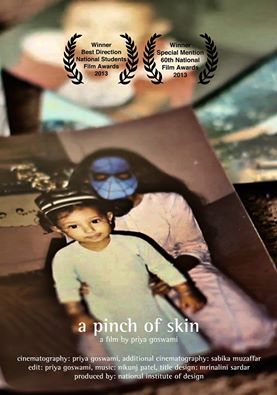
Sahiyo co-founder’s documentary ‘A Pinch of Skin’ will be screening at NaturFreudeJungend in Berlin on the 25th May. 25th May is also the one-year anniversary of the historic repealing of the ban on abortion in Ireland, also known as the 8th Amendment. This is especially significant as a successful contemporary feminist movement, where women of Ireland voted against the ban on abortion, influencing pro-choice ideas in the Irish constitution. Goswami will be joined by a pro-choice activist from Ireland, Dervla O’Malley and Dr. Tobe Levin von Gleichen, Female Genital Cutting/Mutilation activist, for a panel discussion post the screening. The discussion will aim to look at practices and cultural ideas such as Female Genital Cutting, stigma on abortion, menstruation taboos which try to control the female body and sexuality.
Sahiyo Stories Shown at Reconference In Nepal
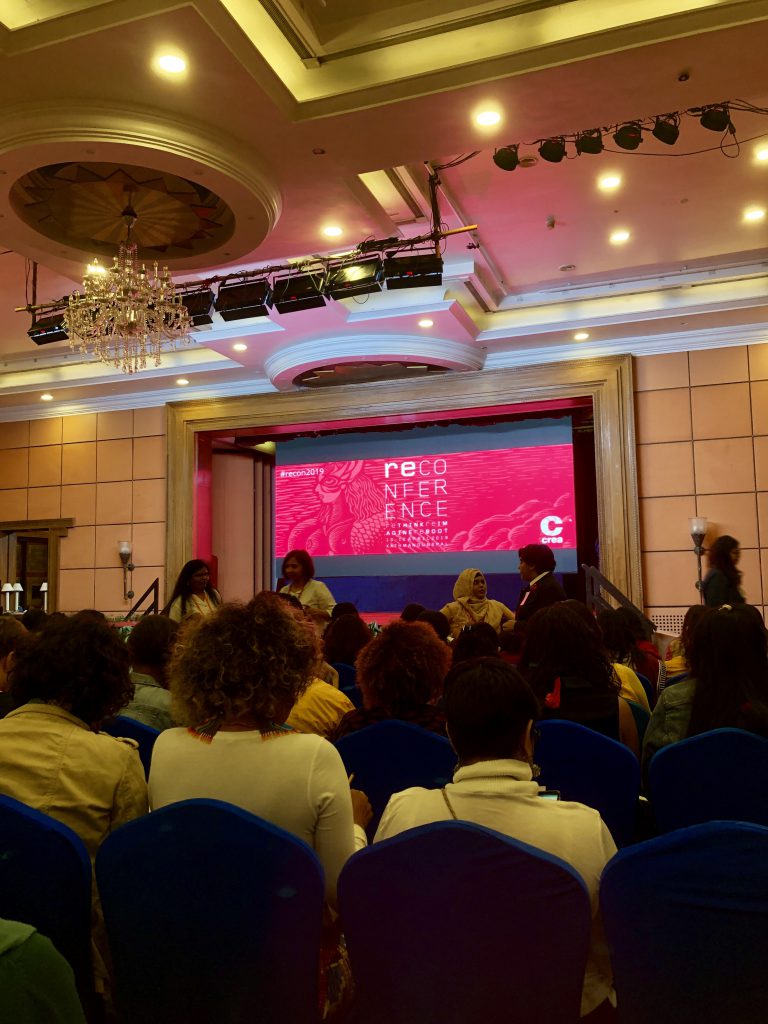
From April 10 to 12, Sahiyo co-founder Mariya Taher attended Reconference, a three-day conference hosted by CREA, to address today’s most challenging socio-political issues and their intersections with feminism, art, and technology by rethinking, reimagining, and rebooting how to build an inclusive feminist vision of justice. Sahiyo Stories, a digital storytelling project organized and created by Sahiyo and StoryCenter, was selected to be part of Day 2 of Reconference, and Mariya presented the collection of 10 digital stories created by women living in the US who had undergone female genital cutting (FGC) or had family members who had undergone it, in order to highlight that FGC is a global issue affecting women of all different backgrounds. Her workshop was the only one highlighting FGC at the three-day conference.
